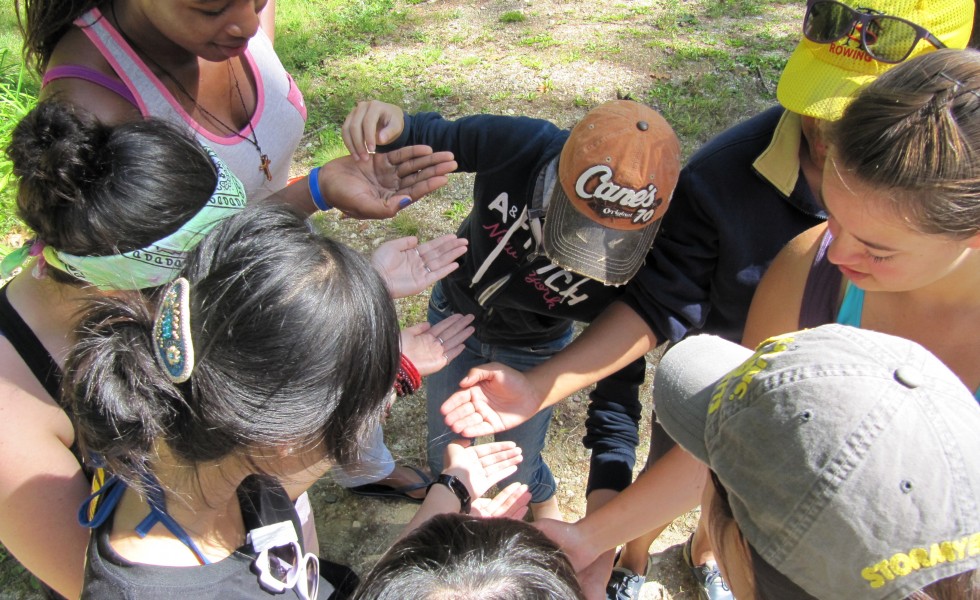
Leadership Development
Great for Upperclassmen, RA’s, Orientation Leaders, Sports Teams, Student Government and Faculty Members
“Before you are a leader, success is all about growing yourself. When you become a leader, success is all about growing others.” – Jack Welch
Our approach to leadership development has a dual focus: leadership of self, and leadership of others. Many of our leadership trainings combine elements of both. Our leadership programs are designed to the needs of your individual leaders and the groups they lead. Through instruction, coaching and engaging simulation activities, all participants will have opportunities to practice and hone their skills while having a lot of fun together.
Self-Leadership
Authentic leadership begins with being grounded in one’s own vision, values, strengths and growth areas. Our self-leadership training focuses on clarifying these innate characteristics for the individual, supporting choices and actions that in alignment with who you are. We refer to this as living who you are “on purpose” rather than accidentally.
Our self-leadership training can explore the following:
- Clarifying personal vision, values and strengths
- Aligning choice and action with these attributes of self
- Identifying areas for personal growth
- Creating personal mission statements
- Setting healthy boundaries
- Understanding and practicing personal accountability
Leading Others
Leaders are individuals who see the inherent risk in taking action, and yet choose to do so because of a larger vision they hold for how that action can impact their surroundings. Our leadership trainings explore the interaction between self and others and how this can produce motivation, inspiration and direction for the group you are leading.
Our leadership skills training can explore the following:
- Practicing listening skills
- Identifying and leveraging the strengths and skills of others
- Learning to identify and allocate resources
- Conveying thoughts and feelings clearly
- Practicing the art of inquiry
- Motivating others
- Understanding and managing group dynamics
- Being a mentor
- Learning conflict resolution strategies
- Delivering and receiving feedback and “feed-forward”
 Adventure In Adventure Out
Adventure In Adventure Out